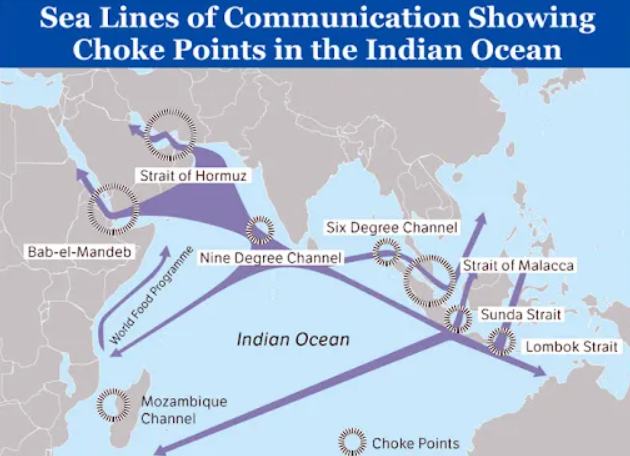China: An aspiring world power
-
Huge defence budget: China is an aspiring world power that spends $252 billion on its defence budget, as compared to the $72.9 billion that India spends. Both countries limit their budget to around 2% of their GDP, which in China’s case is five times our size.
-
Formidable navy: They have downsized their army and built a navy, which is growing faster than the US navy.
Strategic weakness of China:
Their only strategic weakness is 70% of their imported oil. Hence, the only guarantee of Chinese non-aggression and good behaviour is a well-crafted threat to their oil tankers and a complete naval mastery of the escalation that will follow.

Why Navy & Airforce should be given bigger roles?
-
Unfavourable geography: Relying on maritime and Airforce power offers a better alternative to militarily reinforcing the unfavourable geography of the Sino-Indian border in the Himalayas.
-
Expensive manpower: In the future, manpower is going to get increasingly expensive. At present, our strategic options are constrained because the army gets 61% of the defence budget and 81% of it goes into manpower and maintenance.
-
Better conventional deterrence: We can achieve better conventional deterrence against China by giving bigger roles to the navy and air force and downsizing the army by 2,00,000 men over five years through retirement and reduced recruitment.
-
The reduction in manpower will save approximately Rs 30,000 crore, which can be utilized equally by the three services.
Way forward
Countering China cannot be done by throwing expensive manpower at the problem. It is only possible by shifting the battlespace to advantageous geography, by a united navy and air force effort, while a technically advanced army holds the Himalayan border.